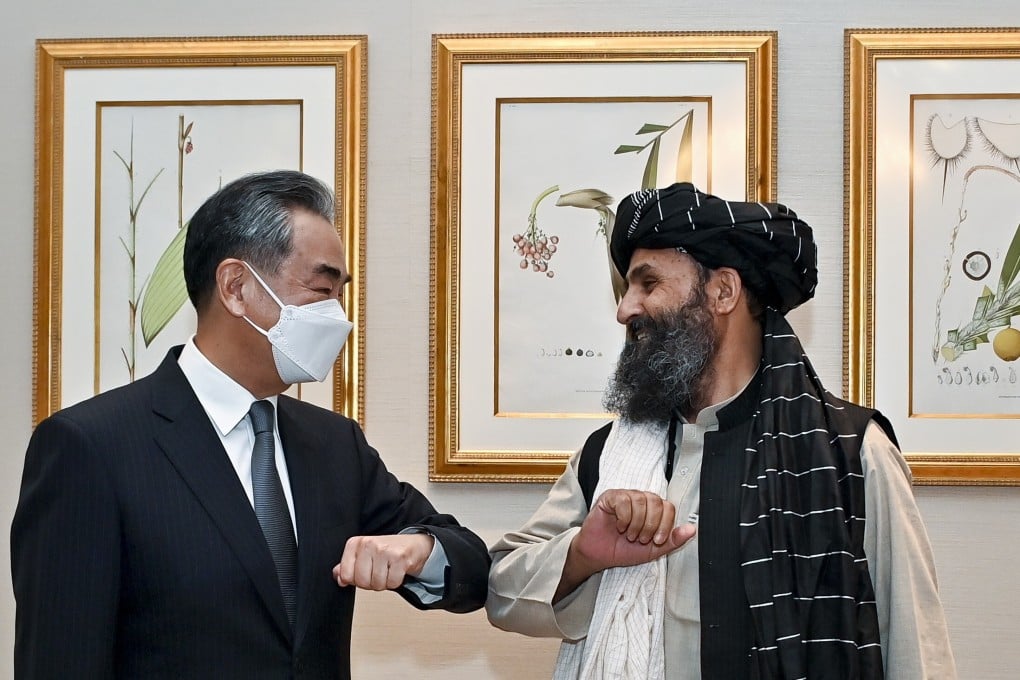China and Afghan Taliban set for closer interaction, as US urged to be ‘pragmatic’
- The US and its allies bear ‘unshirkable responsibility’ for Afghanistan’s troubles, Foreign Minister Wang Yi says during meeting with Afghan Taliban in Doha
- Chinese President Xi Jinping joins Pakistan’s Prime Minister Imran Khan in calling on the international community to come to the aid of war-torn country


04:19
Who is the de facto Taliban leader, Mullah Abdul Ghani Baradar?
Details of the working-level mechanism to enhance dialogue and mutual understanding were not immediately available but, in a pre-recorded message broadcast on Iranian state TV, Wang said that the Taliban was eager to engage globally.
“China will host the third ‘neighbours of Afghanistan’ meeting at the appropriate time,” he said, referring to ministerial-level discussions with the five other nations bordering the war-ravaged country and with a vital stake in its stability.
Chinese President Xi Jinping made a similar appeal on Tuesday after a phone call with Pakistani Prime Minister Imran Khan, calling on the international community to swiftly send humanitarian and economic aid to Afghanistan.